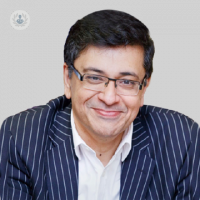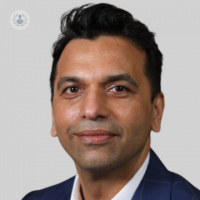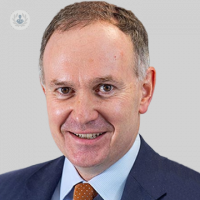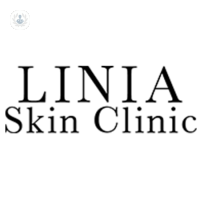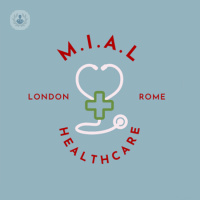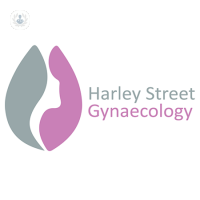What are cysts?
Cysts are closed sacs in the body’s tissue that may be filled with fluid, air, or other substances. They have a membrane, or “shell”, to divide them from the surrounding tissue, and the cells that make up this membrane are abnormal compared to the surrounding cells.
Cysts can appear almost anywhere on the body, including on bones, organs, and the skin. There are hundreds or types of cyst and many possible causes.
Most cysts are benign and some resolve on their own; others may require surgical removal and a small proportion are cancerous.
Types of cysts
There are many types of cyst, including:
- Cystic acne
- Ganglion cyst
- Ingrown hair cyst
- Kidney cysts (e.g. polycystic kidney disease (PKD))
- Liver cyst
- Mucus cyst (mucocele)
- Ovarian cyst
- Pancreatic cyst
- Sebaceous cyst
- Tarlov cyst
Prognosis
The vast majority of cysts are benign (non-cancerous) and cause few problems for the patients. Many cysts simply go away on their own. However, if a cyst fails to resolve by itself, if it is causing particular discomfort or pain, or if its size and appearance bother the patient, it may require surgical removal, although this may also depend on the location of the cyst in the patient’s body.
If a cyst becomes infected, it can become sore and red, and may develop into an abscess (filled with pus).
A small proportion of cysts are cancerous, with the sac being formed by the body as an immune response to try to contain the cancerous cells and prevent them from spreading. However, if the cancer already has its own blood supply, the cyst will be ineffective. It is important to have any cyst that does not disappear quickly checked out by a doctor and monitored to make sure it is not cancerous.
Cysts symptoms
Cysts on the skin or close to it may be visible as lumps on the body. Cysts on the internal organs may be more difficult to spot, unless they cause symptoms such as pain in that area or affect the function of the organ. For example, kidney cysts caused by polycystic kidney disease (PKD) can lead to frequent urination or blood in the urine.
What causes cysts?
A number of things can lead to cysts, including blocked ducts or glands, infections, inherited conditions, chronic inflammation, parasites, injuries, and tumours.
Treatments for cysts
The treatment will depend on the type, size, and location of the cyst. Some common treatments include:
- Draining the fluid or other material from the cyst using a syringe
- Medication to reduce inflammation in the cyst
- Surgery to remove the cyst (usually as a last resort for persistent cysts or if the cyst is cancerous)
Which type of specialist treats cysts?
Cysts can be treated by doctors and surgeons from a number of different specialties, depending on the type and location of the cyst. For example, sebaceous cysts and other cysts affecting the skin may be treated by a dermatologist, while ovarian cysts may be treated by an obstetrician/gynaecologist.
Киста
What are cysts?
Cysts are closed sacs in the body’s tissue that may be filled with fluid, air, or other substances. They have a membrane, or “shell”, to divide them from the surrounding tissue, and the cells that make up this membrane are abnormal compared to the surrounding cells.
Cysts can appear almost anywhere on the body, including on bones, organs, and the skin. There are hundreds or types of cyst and many possible causes.
Most cysts are benign and some resolve on their own; others may require surgical removal and a small proportion are cancerous.
Types of cysts
There are many types of cyst, including:
- Cystic acne
- Ganglion cyst
- Ingrown hair cyst
- Kidney cysts (e.g. polycystic kidney disease (PKD))
- Liver cyst
- Mucus cyst (mucocele)
- Ovarian cyst
- Pancreatic cyst
- Sebaceous cyst
- Tarlov cyst
Prognosis
The vast majority of cysts are benign (non-cancerous) and cause few problems for the patients. Many cysts simply go away on their own. However, if a cyst fails to resolve by itself, if it is causing particular discomfort or pain, or if its size and appearance bother the patient, it may require surgical removal, although this may also depend on the location of the cyst in the patient’s body.
If a cyst becomes infected, it can become sore and red, and may develop into an abscess (filled with pus).
A small proportion of cysts are cancerous, with the sac being formed by the body as an immune response to try to contain the cancerous cells and prevent them from spreading. However, if the cancer already has its own blood supply, the cyst will be ineffective. It is important to have any cyst that does not disappear quickly checked out by a doctor and monitored to make sure it is not cancerous.
Cysts symptoms
Cysts on the skin or close to it may be visible as lumps on the body. Cysts on the internal organs may be more difficult to spot, unless they cause symptoms such as pain in that area or affect the function of the organ. For example, kidney cysts caused by polycystic kidney disease (PKD) can lead to frequent urination or blood in the urine.
What causes cysts?
A number of things can lead to cysts, including blocked ducts or glands, infections, inherited conditions, chronic inflammation, parasites, injuries, and tumours.
Treatments for cysts
The treatment will depend on the type, size, and location of the cyst. Some common treatments include:
- Draining the fluid or other material from the cyst using a syringe
- Medication to reduce inflammation in the cyst
- Surgery to remove the cyst (usually as a last resort for persistent cysts or if the cyst is cancerous)
Which type of specialist treats cysts?
Cysts can be treated by doctors and surgeons from a number of different specialties, depending on the type and location of the cyst. For example, sebaceous cysts and other cysts affecting the skin may be treated by a dermatologist, while ovarian cysts may be treated by an obstetrician/gynaecologist.


Lipoma vs. cyst: how to spot the difference
Por Dr Dev Shah
2024-11-30
Both lipomas and cysts can feel quite similar during their early stages, but would you be able to spot the difference? One of our leading dermatologists Dr Dev Shah explains how to recognise both and how they can be healed. подробнее
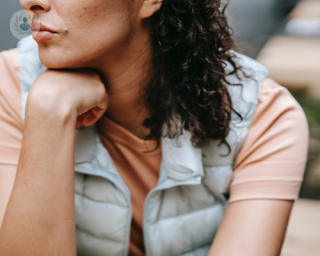

Bartholin cysts and abscesses: What are they, and how are they treated?
Por Mr Mahantesh Karoshi
2024-11-30
подробнее


Are cysts dangerous?
Por Dr Dev Shah
2024-11-30
We can get a myriad of different types of lumps, bumps, and spots on our skin. Cysts are one of the commonest lumps that we can develop. What defines a cyst, what are the most common types, and can they be a danger to our health? Acclaimed dermatologist Dr Dev Shah is here to explain. подробнее


Recurrent vaginal skin infections: Could diabetes be the cause?
Por Mr Mahantesh Karoshi
2024-11-30
Leading consultant gynaecologist and women’s health expert Mr Mahantesh Karoshi sheds light on the causes of recurrent vaginal skin infections and explains how undiagnosed diabetes may be related in this informative article. подробнее
Врачи-специалисты в области Киста

LINIA Skin Clinic
LINIA Skin Clinic
64 Harley St, London
No existe teléfono en el centro.
Si haces uso de este teléfono facilitado por TOP DOCTORS nos autorizas al tratamiento de tu teléfono para fines estadísticos y comerciales. Para más información, lee nuestra Политика конфиденциальности
Top Doctors

MIAL Medici Italiani A Londra
MIAL Medici Italiani A Londra
9 Harley Street, London
No existe teléfono en el centro.
Si haces uso de este teléfono facilitado por TOP DOCTORS nos autorizas al tratamiento de tu teléfono para fines estadísticos y comerciales. Para más información, lee nuestra Политика конфиденциальности
Top Doctors

Harley Street Gynaecology
Harley Street Gynaecology
25 Harley Street
No existe teléfono en el centro.
Si haces uso de este teléfono facilitado por TOP DOCTORS nos autorizas al tratamiento de tu teléfono para fines estadísticos y comerciales. Para más información, lee nuestra Политика конфиденциальности
Top Doctors
-
LINIA Skin Clinic
64 Harley St, London, Central LondonЭксперт в области :
- прыщи
- Эстетическая дерматология
- Поражения кожи
- Выпадение волос
- Коррекция морщин лица филлерами
-
MIAL Medici Italiani A Londra
9 Harley Street, London , W1G Marylebone LondonЭксперт в области :
- Кардиология
- Физиотерапия
- Медицина внутренних органов
- Неврология
- Оториноларингологía
- радиология
-
Harley Street Gynaecology
25 Harley Street, W1G Marylebone LondonЭксперт в области :
- эндокринология
- Акушерство и гинекология
- Женское здоровье
- Менопауза
- Вагинальные проблемы
- Сексуальное здоровье
